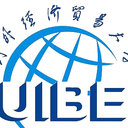Sleep deprivation disrupts the lacrimal system and induces dry eye disease.
Mots clés
Abstrait
Sleep deficiency is a common public health problem associated with many diseases, such as obesity and cardiovascular disease. In this study, we established a sleep deprivation (SD) mouse model using a 'stick over water' method and observed the effect of sleep deficiency on ocular surface health. We found that SD decreased aqueous tear secretion; increased corneal epithelial cell defects, corneal sensitivity, and apoptosis; and induced squamous metaplasia of the corneal epithelium. These pathological changes mimic the typical features of dry eye. However, there was no obvious corneal inflammation and conjunctival goblet cell change after SD for 10 days. Meanwhile, lacrimal gland hypertrophy along with abnormal lipid metabolites, secretory proteins and free amino-acid profiles became apparent as the SD duration increased. Furthermore, the ocular surface changes induced by SD for 10 days were largely reversed after 14 days of rest. We conclude that SD compromises lacrimal system function and induces dry eye. These findings will benefit the clinical diagnosis and treatment of sleep-disorder-related ocular surface diseases.


